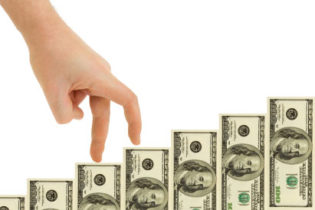My #1 Tip For Saving Money
If you’re interested in starting down the path to financial independence, I cant emphasize enough the importance of saving money. A consistent savings program is the key to putting you on the right track. Ive gone through various stages of saving a solid percentage of my income, while other times not so much. Through my experiences, the best way to save is this:

START TRACKING EVERYTHING!
One of my favorite quotes is by famed business management guru Peter Drucker:
What gets measured, gets managed.
Its a simple idea, but it is very powerful and effective indeed. This tip has helped me simplify my finances greatly. It has also worked in other aspects of my life. I now track my budgets, asset allocation plans, expenses, goals, diet, and a variety of other things. I’ve found that as I measure these things and track them in some way, Im seeing significant improvement.
How you choose to do it is up to you. Some options are to keep a notebook of monthly income and expenses, or set up a file on your computer. Myself, I have a spreadsheet saved on my Google Drive account. I can access it from my computer, phone, tablet, etc. Its easy, and its always there. It takes the difficulty and excuses out of the equation for me.
Once I started measuring, I noticed that not only did I have a clearer picture of my financial scenario, but it made me more likely to improve it. Once you start seeing small improvements recorded on paper, something clicks in your head, and you want to see even more change. I believe this to be similar to exercise, but for your brain. One of my favorite writers, James Altucher, calls it exercising your idea muscle.
Okay, now to apply this to saving money. The easiest thing to start with would be your monthly budget. Just take one column and add up all income you have in a given month. Then, take another column and start writing down your expenses (for most, this will be a longer and more complicated list). Its easiest to start with the biggest and most consistent ones. Lead off with your monthly mortgage or rent payment, then included other housing related expenses (utilities, cable, etc.). Next enter your other non-discretionary purchases like vehicle expenses, insurance, and groceries. If those items are paid on an annual or semi-annual basis, just turn them into monthly numbers for this exercise. Finally, take a look at your fully discretionary purchases. Restaurants, retail purchases beyond the basics, etc. Try to get as complete as you can. Some tips would be to look at past credit card statements, checking ledgers, and receipts.
What is left over is your amount available for savings if you didn’t change any part of your lifestyle. Most people would be surprised at how little is left in a given month. For some people, that number is negative. Once you have a good idea what it is, then you can decide what you want it to be. How much you want to save is up to you. Once you get started, I think you’ll find you will be happier if you start saving more.
If youre looking to improve your savings, you can do two things:
- Make more income
- Cut your expenses
The easiest thing to do is cut your expenses. Over the past six months, Ive cut my monthly expenses meaningfully.
Here is a sample of some items Ive done:
- Got rid of my satellite tv. I installed a broadcast antenna to receive local channels. I am a Netflix and Amazon Prime subscriber, so I still have a wide variety of options. Savings: approximately $80 month or $960 per year.
- Saved money on my internet service. I purchased my own modem/router which saves me roughly $6/month I paid leasing it from my ISP. I also asked and received a discount for agreeing to a 1-year contract. Total savings of $25 month or $300 per year.
- Cut down on restaurant meals. The savings on this varies, but it adds up. It also forced me to learn to cook. So I’m saving money, and eating healthier. Sounds like a win-win to me.
- Refinanced my mortgage. This one will be dependent on your current situation. Over the past few years, the Feds QE programs have held interest rates at historically low levels. I used this opportunity to refinance into a much lower rate, and into a 15-year mortgage. I’m paying much less interest, and am on track to pay principal down much earlier. Savings will surely be in the thousands of dollars.
- Put my library card to use. This one is close to my heart as I love to read. You would be surprised at the resources your local library has. Books, ebooks, audio books, magazines, movies, computers, and more. You can easily save money here. I still buy plenty of books, but I read more and have limited a few extra purchases per year by using the library. Plus, it just feels good to use this resource.
These are just a couple of quick and easy ideas that you can implement without major lifestyle adjustments. The key is to put the numbers on paper, make some simple changes, and watch the savings start to add up. Once you have new-found savings, start paying yourself first early in the month once you know the extra savings is there. Move it to a separate savings or investment account so you’re less likely to spend it.
Once you get going, you would be surprised how easy and addicting it becomes.
What ideas have you implemented to save money each month?
I am a Blogger making a full time income online since 2010 (read more about me). I invite you to read my reviews and Download The Beginners Guide To Online Investing to learn how to earn money investing online.











 ��
�
��
�